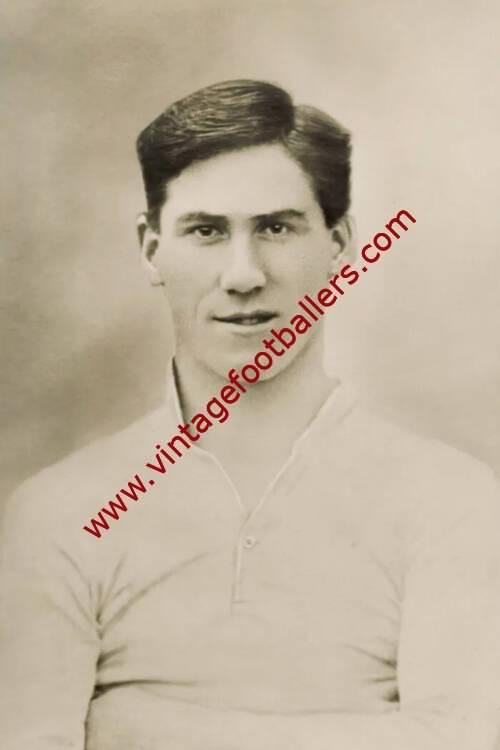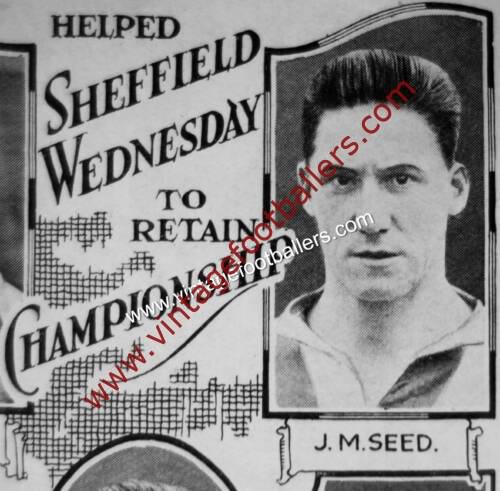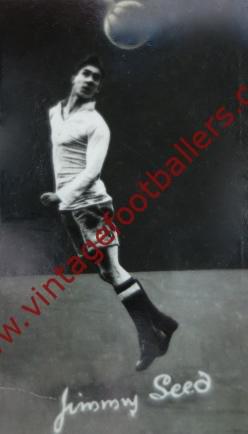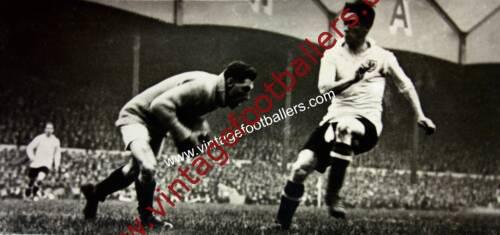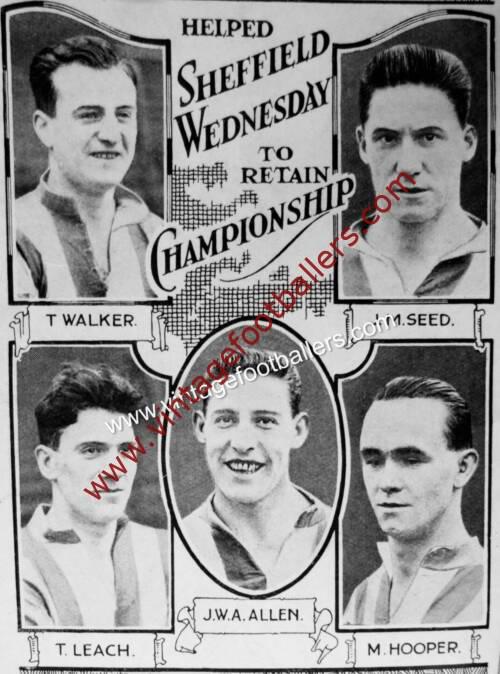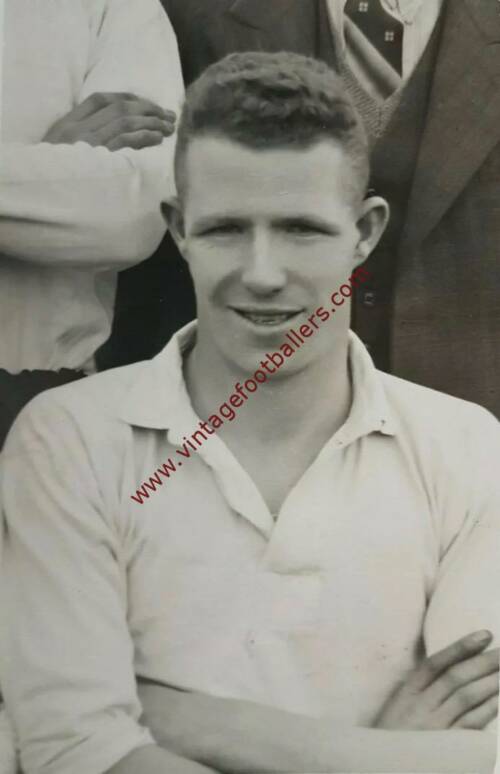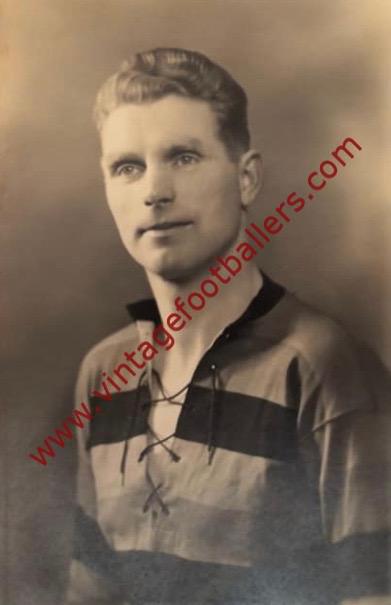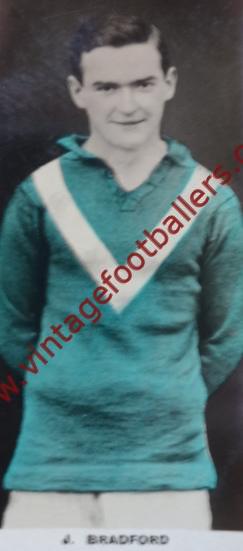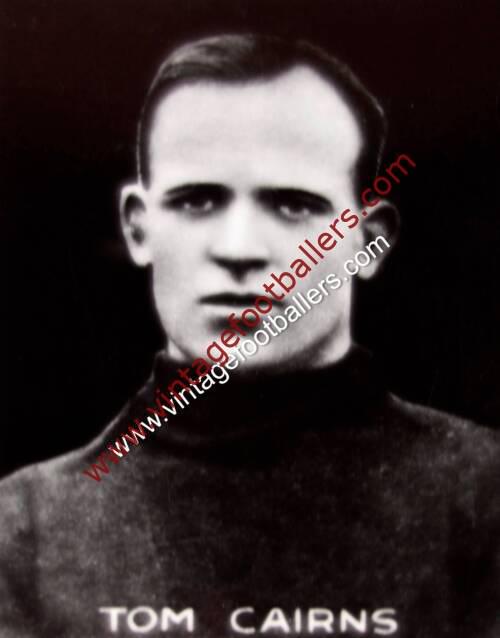Please choose your photo size from the drop down menu below.
If you wish your photo to be framed please select Yes.
Note: 16″x 20″not available in a frame.
Images can also be added to accessories. To order please follow these links
£8.95 – £49.95
Please choose your photo size from the drop down menu below.
If you wish your photo to be framed please select Yes.
Note: 16″x 20″not available in a frame.
Images can also be added to accessories. To order please follow these links
Blackhill, near Consett, County Durham born inside right Jimmy Seed started his football career with Whitburn Villa in 1911 and played for Whitburn in 1912 before Sunderland manager Bob Kyle gave him a second trial at inside right in a North Eastern League match against Wallsend. Seed scored a hat-trick in the match, as a result signing for Sunderland in April 1914, and spent 1914-15 on their books, scoring plenty of goals for the reserves as the team lifted the Durham Senior Cup, before the onset of the First World War interrupted his progress. He never played in their first team due to the suspension of football other than in a single Victory League match against Durham City, where he performed poorly as he was still in convalescence from the effects of being gassed in the trenches in October 1918 during his wartime service with The Prince of Wales’s Own (West Yorkshire) Regiment.
Having been given a free transfer, he joined Mid Rhondda in Wales in July 1919. Seed joined former England international Joe Bache and ex Sunderland teammate Frank Pattison in the Mid Rhondda side and they had a successful time in the seven months that Seed was with them, winning both the Southern League Division Two and Welsh League titles. before signing for Tottenham Hotspur for a fee of £250 in January 1920, for whom he made his Football League debut at Wolverhampton Wanderers that April as the team sealed promotion to the top flight as Second Division Champions.
Seed was a virtual ever present for Spurs in the following seven seasons and won the FA Cup with Tottenham the following season beating Wolves 1-0 in the 1921 Final at Stamford Bridge, scoring 5 goals in the FA Cup run. The following season he scored a hat-trick in a 4-0 win over Newcastle United in November 1921 and scored in their FA Cup semi final defeat to Preston North End at Hillsborough. He soon became one of their key players and scored a career best 19 goals in their 1924-25 campaign when he was the club’s leading goalscorer.
He won 5 England caps, making his international debut against Belgium in Brussels in May 1921, scoring his only goal two years later also against Belgium, and winning his final cap in a 2-0 defeat to Scotland at Hampden Park in April 1925. He also captained the FA Tour party on their 1929 Tour to South Africa, as well as playing for The Professionals in the 1929 Charity Shield, which they won 3-0 at The Den.
He scored 77 goals in 256 appearances for Spurs before signing for Sheffield Wednesday in April 1927 in a cash plus player swap deal for Arthur Lowdell, with Seed already aged 32. His sale was to prove to Tottenham manager Billy Minter’s cost, and they were relegated without Seed, who became Wednesday’s club captain.
In contrast over the next four seasons he played 147 games for Wednesday scoring 37 goals, winning the League Championship in successive seasons in 1928-29 and 1929-30. He played in Sheffield Wednesday’s 2-1 defeat by Arsenal in the Charity Shield at Stamford Bridge in October 1930. however a knee injury finished his playing career in 1931.
His first administrative job was as secretary-manager to Clapton Orient, joining them in April 1931, he resigned in May 1933 when he was appointed secretary-manager of Charlton Athletic, whom he led through a period of unprecedented success. He led Charlton to the Third Division (South) Championship in 1935 and back to back promotions when they finished Second Division runners up in 1936. They finished runners up in the League Championship behind Manchester City in 1937. and finished third and fourth in the final two seasons before the outbreak of the Second World War. After the War he led Charlton to the 1946 FA Cup Final which they lost to Derby County after extra time at Wembley, before winning the Cup the following season with a 1-0 victory over Burnley in the 1947 Final. He remained at the helm until his resignation in September 1956
He then became chief scout at Bristol City in January 1957, and was the club’s caretaker manager in January 1958, after which he became the manager at Millwall a week later, from 27th January, until he left the post in July 1959, although he did remain in an advisory capacity and was also made a director in January 1960 until his death six years later aged 71.
| Weight | N/A |
|---|

